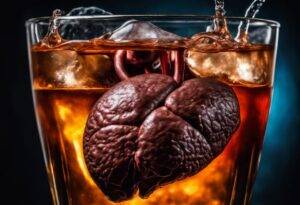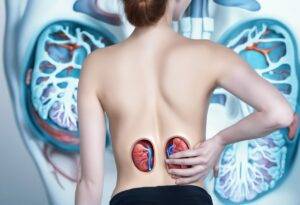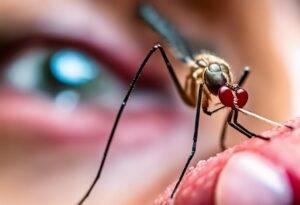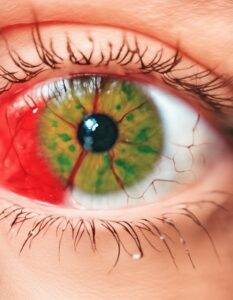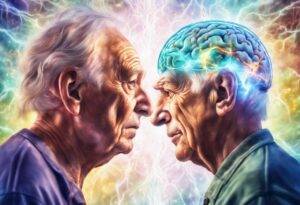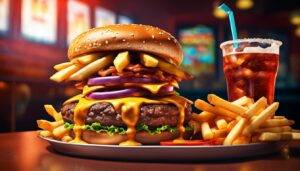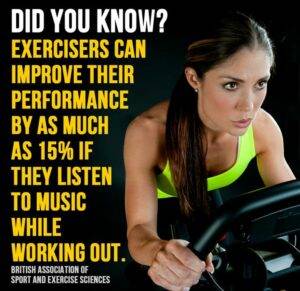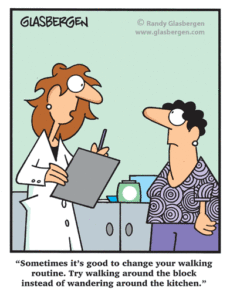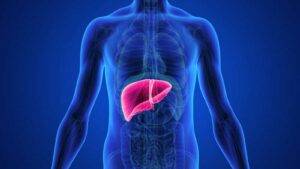Losing weight is a common goal for many individuals, but the desire for quick results often leads to the pursuit of rapid weight loss methods. While shedding pounds rapidly may seem tempting, it is essential to understand the various aspects and implications it brings. In this blog post, we will explore what constitutes rapid weight loss, the hormonal factors involved, potential physical changes, impact on health markers, effectiveness of different diets, genetic influences, risks and long-term consequences, the importance of medical evaluations, protein intake, and implications on different aspects of health including bone health, blood sugar control, hormonal balance, and more. Additionally, we will touch upon the psychological effects and challenges associated with rapid weight loss.
Unveiling the Impact of Rapid Weight Loss on Your Body and Mind
What is Rapid Weight Loss?
Rapid weight loss refers to a significant reduction in body weight over a relatively short period of time. While there is no universal definition, losing more than 1-2 pounds per week is typically considered to be rapid weight loss (“Rapid Weight Loss,” n.d.). However, it’s important to note that the recommended rate of weight loss varies depending on an individual’s starting weight and overall health.
Hormonal Factors in Rapid Weight Loss:
Rapid weight loss can have a significant impact on hormonal balance in the body. As the body experiences a sudden reduction in food intake and energy availability, several hormonal changes occur. Leptin, commonly known as the satiety hormone, decreases during rapid weight loss, leading to increased hunger and decreased feelings of fullness (“Rapid Weight Loss,”2021). Additionally, the levels of other hormones like ghrelin, cortisol, and thyroid hormones may be affected, potentially further impacting appetite regulation and metabolism.
Just a little heads up: some of the links on this site may be affiliate links, which means if you make a purchase through them, we might get a little kickback. But don’t worry, it won’t cost you a cent extra! Think of it as the universe secretly thanking us for helping you find a great deal. Your support keeps the good vibes flowing.
Physical Changes and Loose Skin:
While shedding excess weight can be a great accomplishment, rapid weight loss may result in loose skin due to the sudden reduction in body mass (“Loose Skin After Weight Loss,” n.d.). This occurs because the skin may not have adequate time to adjust to the changes in body composition. However, factors like age, genetics, and overall skin health can also influence the extent of loose skin.
Impact on Energy Levels, Water Intake, Menstrual Cycles, Fertility, Blood Pressure, and Cholesterol levels:
Rapid weight loss can lead to significant changes in energy levels. With fewer calories consumed, individuals may experience fatigue and reduced physical performance (“Rapid Weight Loss,”2021). Additionally, inadequate hydration can be a concern during rapid weight loss, as water is often lost along with stored carbohydrates (“Rapid Weight Loss,” n.d.).
In females, dramatic weight loss can disrupt menstrual cycles and fertility. It may cause irregular periods or even the absence of periods altogether due to hormonal imbalances (“Rapid Weight Loss,” n.d.). Moreover, rapid weight loss can impact blood pressure and cholesterol levels. While weight loss can improve these markers in general, the speed at which weight is lost may affect the optimal balance.
Effectiveness of Different Diets and Approaches:
There are numerous diets and approaches available for rapid weight loss, but their effectiveness varies from person to person. Low-carbohydrate diets such as the ketogenic diet and low-calorie diets have shown short-term success (“Rapid Weight Loss,” n.d.). However, it’s crucial to approach these diets with caution and consult a healthcare professional to ensure adequate nutrient intake and overall health.
Role of Genetics in Rapid Weight Loss:
Genetics play a significant role in an individual’s response to weight loss efforts. Certain genes can influence how the body burns calories, responds to different diets, and regulates appetite (“Can Genetics Help You Lose Weight, “2021). Understanding one’s genetic makeup may provide valuable insights into the most effective strategies for weight loss.
Risks and Long-term Consequences of Rapid Weight Loss:
While rapid weight loss may offer immediate benefits, it is essential to consider the potential risks and long-term consequences. Some of the risks include muscle loss, nutrient deficiencies, gallstones, and regaining weight once the diet is discontinued (“Rapid Weight Loss,” n.d.). Moreover, individuals who undergo rapid weight loss may have a higher risk of developing certain obesity-related diseases, such as cardiovascular diseases, osteoporosis, and metabolic disorders.
Importance of Medical Tests and Evaluations:
Before embarking on any rapid weight loss program, it is crucial to undergo medical tests and evaluations. These assessments can help identify any underlying health conditions, ensure the safety of the weight loss process, and guide individuals towards the most appropriate approach (“Rapid Weight Loss,”2021).
Protein Intake and its Significance:
During rapid weight loss, adequate protein intake becomes even more essential. Protein helps preserve lean muscle mass, supports metabolism, and promotes feelings of fullness (“Protein for Weight Loss,” n.d.). Including lean sources of protein in the diet is crucial for maintaining muscle mass during weight loss.
Implications for Bone Health, Blood Sugar Control, Insulin Sensitivity, Hormonal Balance, Gallbladder Health, Metabolism, Immune System Function, Hair Health, Skin Elasticity, and PCOS Symptoms:
Rapid weight loss can have implications on various aspects of health. Insufficient calorie intake and nutrient deficiencies can negatively impact bone health, leading to increased fracture risk (“Bone Health: Tips to Keep Your Bones Healthy,” n.d.). Furthermore, rapid weight loss may improve blood sugar control and insulin sensitivity in individuals with diabetes or prediabetes (“Rapid Weight Loss,”2021).
Hormonal imbalances caused by rapid weight loss may disrupt menstrual cycles, fertility, and overall hormonal balance (“Rapid Weight Loss,” n.d.). Individuals with a history of gallbladder problems may also be at risk when pursuing rapid weight loss due to an increased likelihood of gallstone formation (“Rapid Weight Loss,” n.d.). Additionally, metabolism changes during weight loss can impact immune system function and hair health (“Can Losing Weight Cause Hair Loss,”2021). The elasticity of the skin may also be affected, contributing to loose skin formation (“Loose Skin After Weight Loss,” n.d.). Lastly, rapid weight loss can help improve some symptoms of Polycystic Ovary Syndrome (PCOS), such as insulin resistance and irregular periods (“Rapid Weight Loss,”2021).
Psychological Effects and Challenges:
Rapid weight loss can have profound psychological effects on individuals. Significant lifestyle changes, dietary restrictions, and the pressure to achieve immediate results may lead to increased stress levels, body image concerns, disordered eating patterns, and feelings of failure (“Psychological Effects of Weight Loss,” n.d.).
While I do cite reputable sources, I am not a medical professional. Please use professional medical advice when making any health-related decisions.
Conclusion:
Rapid weight loss may appear enticing, but it is crucial to consider its various aspects and implications. Hormonal changes, physical transformations like loose skin, impact on health markers, effectiveness of diets, genetic influences, and long-term consequences should all be taken into account. Prioritizing medical evaluations, considering protein intake, understanding the implications on bone health, blood sugar control, hormonal balance, gallbladder health, metabolism, immune system function, hair health, skin elasticity, and PCOS symptoms, as well as being aware of the psychological effects, are all key factors in making informed decisions on weight loss journeys.
References:
1. Rapid Weight Loss. (n.d.). Retrieved from [https://www.webmd.com/diet/obesity/rapid-weight-loss#1]
2. Loose Skin After Weight Loss. (n.d.). Retrieved from [https://www.healthline.com/nutrition/loose-skin-after-weight-loss]
3. Can Genetics Help You Lose Weight? (2021). Retrieved from [https://www.mayoclinic.org/healthy-lifestyle/nutrition-and-healthy-eating/expert-answers/genetics/faq-20401769]
4. Protein for Weight Loss. (n.d.). Retrieved from [https://www.hsph.harvard.edu/nutritionsource/what-should-you-eat/protein/]
5. Bone Health: Tips to Keep Your Bones Healthy. (n.d.). Retrieved from [https://www.mayoclinic.org/healthy-lifestyle/adult-health/in-depth/bone-health/art-20045060]
6. Can Losing Weight Cause Hair Loss? (2021). Retrieved from [https://www.healthline.com/nutrition/weight-loss-hair-loss]
7. Psychological Effects of Weight Loss. (n.d.). Retrieved from [https://www.ncbi.nlm.nih.gov/pmc/articles/PMC6251269/]
rapid weight loss, hormonal factors, physical changes, loose skin, energy levels, water intake, menstrual cycles, fertility, blood pressure, cholesterol levels, effective diets, genetics, risks, long-term consequences, medical evaluations, protein intake, bone health, blood sugar control, insulin sensitivity, hormonal balance, gallbladder health, metabolism, immune system function, hair health, skin elasticity, PCOS symptoms, psychological effects

Just a little heads up: some of the links on this site may be affiliate links, which means if you make a purchase through them, we might get a little kickback. But don’t worry, it won’t cost you a cent extra! Think of it as the universe secretly thanking us for helping you find a great deal. Your support keeps the good vibes flowing.











